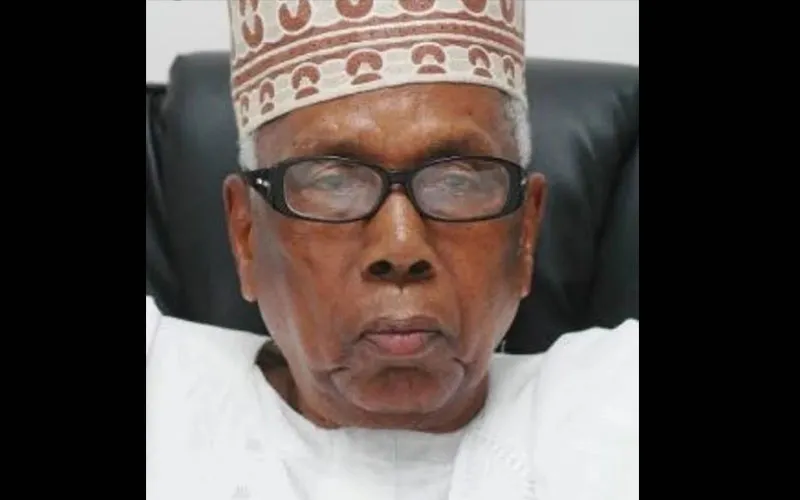“In 2012 I was invited by the American University, Yola to deliver their Convocation lecture and to be conferred with an honorary Doctorate degree that year. I was quite pleased but did not know that it was a prelude to other things. I would later be invited to join its Governing Council with Alhaji Joda as Chairman. Barely two years into my term, he stepped aside from the Board. He did not say much as to why. I suspected that he may have been responsible for my being a Member of the board,” Bishop Kukah narrates.
At one point, the Nigerian lawmaker tried to convince the Bishop to join the controversial Miyetti Allah, a group of Fulani that has been accused of fueling attacks against Christian farmers in parts of Nigeria.
His membership in the group as one of the board members, Joda hoped, would create some form of diversity.
Recalling the late politician’s request, Bishop Kukah says in the tribute, “He gently said to me… I would like you to join the national Board of our Association, Miyetti Allah. It is a misunderstood body and in reality, it is open to people who are not even Fulani but who have cattle.”
“My jaw dropped. Me? How is that possible? I said to him, I do not speak Fulfulde and have never owned a cow. Your friend President Obasanjo has cows and he would fit that kind of a role, I said in protest,” the Bishop recalls his astonishment at being asked to join Miyetti Allah, an organization that is said to be currently under the patronage of Nigeria’s president Muhammadu Buhari.
(Story continues below)
“Well, he responded: I have informed you and I will get the forms for you to fill. It is a harmless group, but we need to diversify it, he repeated,” the Nigerian Prelate further recalls the conversation.
Joda is said to have insisted on delivering membership forms to Bishop Kukah, an offer that the Bishop turned down. Unfortunately, the Catholic Bishop recalls, “I did not warm up to this proposal and somehow, the matter finally died.”
The Bishop remembered another incident in which the late lawmaker gifted him a three-bedroom house when he expressed his desire to start to set up a Think tank. Bishop Kukah recalls that Joda was genuinely delighted and said he was ready to support him.
“He asked me for the location and I told him I still had not found an office yet. He immediately said, I have a house on Maiduguri Road off Constitution Road and you can have it. I am not using it but you can use it for as long as you want,” he recalls Joda’s offer.
The Bishop says of the house, “It was the kind of place we were looking for, a three-bedroom flat with an open courtyard.”
Following his ordination as Bishop of Sokoto, Mr. Joda is said to have paid the Bishop a visit to congratulate him.
“All along, I really did not know how to address Alhaji Joda. As the years rolled by, I always called him Baba mai ran karfe,” Bishop Kukah says.
He adds, “When I was appointed Bishop of Sokoto, he called to congratulate me. I informed him of the ordination more out of courtesy than an expectation that he would show up. He did not come and I more of less left it at that. However, barely three days after my ordination, I had just had breakfast when I was told that Alhaji Joda was in our premises.”
The 69-year old Bishop narrates that Joda’s enthusiasm in fighting for peace in Nigeria began to dwindle not long after President Buhari who had ascended to the helm of the country in 2015 assumed the second term in office.
Following the 2015 election, Joda who had been made Chairman of Nigeria’s Transition Committee invited the Bishop to address the Members of the committee.
Recalling the invitation, Bishop Kukah says, “When I asked what I was expected to speak on, he jokingly said you are no stranger to the issues bedeviling our dear country, so please do us the honor. Just speak about anything you feel the new government should focus on.”
“I took note of his frustrations as the wheels of enthusiasm began to wobble by the second year of the administration. Once or twice when I tried to ask him how he felt about the government, he merely shook his head in pain. I never asked him again,” Bishop Kukah said in his tribute to the former government leader who passed on at the age of 91.
The Bishop says that the former government official tried his best to make Nigeria a better country.
“Alhaji Joda more than paid his dues,” he says, and adds, “I was blessed that he counted me worthy of his company. Meanwhile, we look at the foliage in northern Nigeria with trepidation and wonder, will the trees ever bear any green leaves again? Who will water them now that the last of the gardeners is gone?”
In his tribute to the man he describes as selfless, the Bishop says, “True or false, with Ahmed Joda gone, the north is at best now a huge graveyard. Its children are now largely orphans, with over ten million Almajiri street children, the highest levels of poverty, the highest levels of stunting, wasting and sick children and today, a turf for bandits, kidnappers, robbers and death.”
Agnes Aineah is a Kenyan journalist with a background in digital and newspaper reporting. She holds a Master of Arts in Digital Journalism from the Aga Khan University, Graduate School of Media and Communications and a Bachelor's Degree in Linguistics, Media and Communications from Kenya's Moi University. Agnes currently serves as a journalist for ACI Africa.








